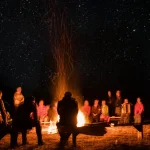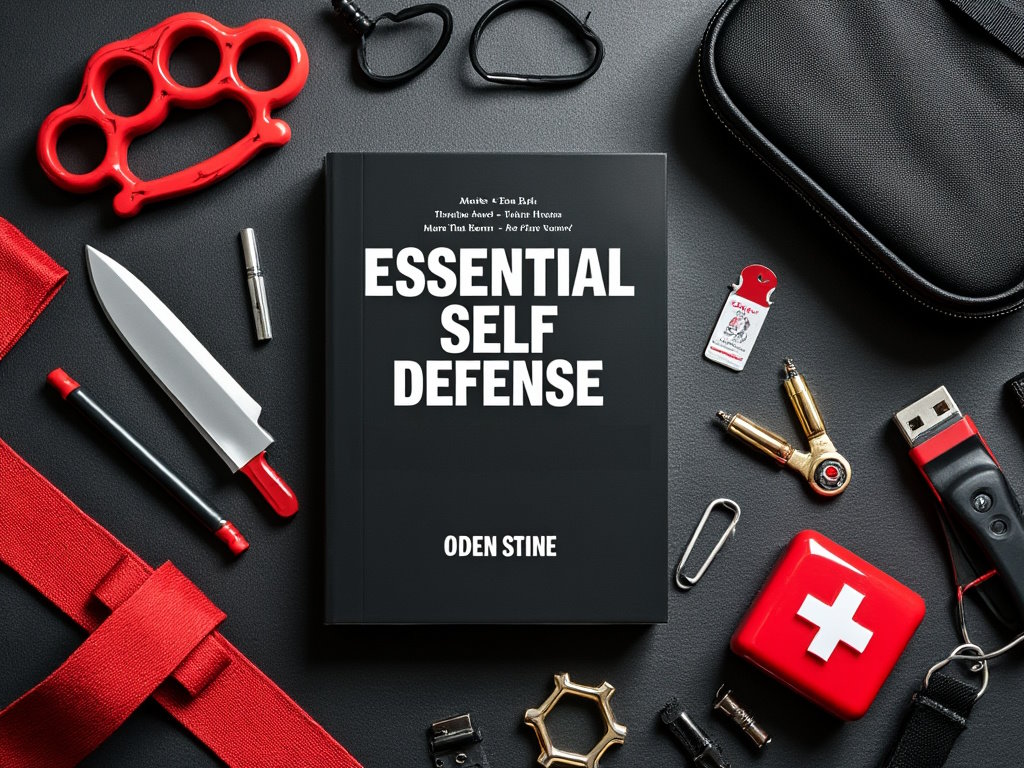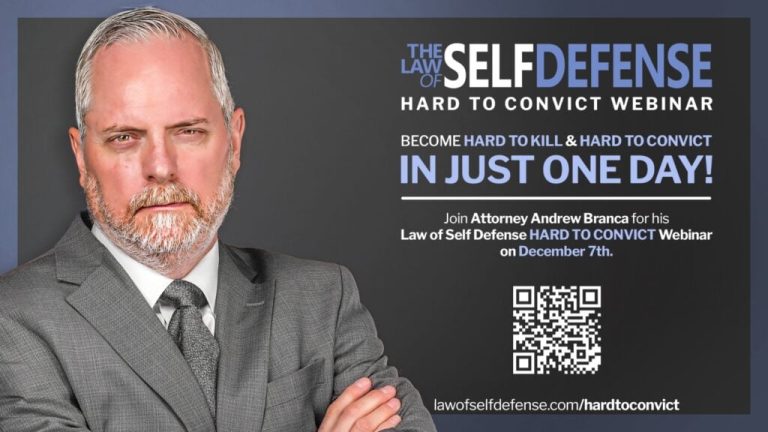One of my Patrons suggested I do a list of recommended books for self-defense practitioners. It took a while but the result is what you can find here below. I’ll keep it up to date when new books become available and I consider them a good addition to the list. But feel free to leave suggestions in the comments, and I’ll take a look at them.
I created categories for the books so the list is easier to navigate. That said, there is some overlap as many books touch upon more than just one aspect of self-defense. So don’t view the categories as absolute, but instead more as a general guideline.
When creating this essential reading list for self-defense, my goal was to cover as many aspects as possible by including a variety of authors and points of view. That doesn’t mean every book listed here is the ultimate or only reference work on the topic. So to be clear:
- Some books I agree with almost 100%, others so not so much. And anything else in between these extremes.
- Some books are relatively new, others have been around for a long time. New doesn’t automatically mean better. Old doesn’t automatically mean obsolete. Some information is timeless; other information is more relevant thanks to it being up to date.
- Some books are filled to the brim with gems of knowledge relevant to self-defense. Others have some fluff or are also focused on other aspects than why I included them in the list. But each one still has information I think you can use.
- Some books cover basics and are an excellent introduction for beginners. Others are in-depth and go into detail on advanced concepts. Both are good.
- Some of these authors are close friends of mine, some I know in passing, others I don’t know at all. I try to be objective in all instances when I add a book to this list, but full disclosure is always best.
Keep all this in mind when you go over this book. I believe the best way to view these books is as a buffet to choose from. Some you will like, others may not be for you. That’s only to be expected as I cannot know what you, the reader, have in training and experience in self-defense. So I chose to include as many as possible in the hope there is enough for everybody to find useful.
For your information: these are affiliate links and I get a small commission through them, at no additional cost to you.
All that said, let’s dig in.
Legal aspects
You cannot claim to practice self-defense without having a good understanding of self-defense law and its legal aspects. If not, then you run the risk of ending up incarcerated for a long time.
The Law of Self Defense: The Indispensable Guide for the Armed Citizen by Andrew Branca
Deadly Force: Understanding Your Right to Self-Defense by Massad Ayoob
Self-Defense Laws of All 50 States by Mitch Vilos
When Deadly Force Is Involved: A Look at the Legal Side of Stand Your Ground, Duty to Retreat and Other Questions of Self-Defense by Bruce M. Lawlor
Psychology of violence.
These books cover information on the psychology of both attackers and victims. How our brains and bodies react to violence, why that happens, what the dynamics are, and how you can use this information for self-defense.
On Killing: The Psychological Cost of Learning to Kill in War and Society by Lt. Col. Dave Grossman
On Combat: The Psychology and Physiology of Deadly Conflict in War and Peace by Dave Grossman and Loren W. Christensen
Deep Survival: Who Lives, Who Dies, and Why by Laurence Gonzales
The Maul (Preparing for the Chaos of Close Combatives) by Schalk Holloway and Gavin Coleman
400 Things Cops Know: Street-Smart Lessons from a Veteran Patrolman by Adam Plantinga
The Little Black Book of Violence: What Every Young Man Needs to Know About Fighting by Lawrence A. Kane and Kris Wilder
The Lucifer Effect: Understanding How Good People Turn Evil by Philip Zimbardo
Why They Kill: The Discoveries of a Maverick Criminologist by Richard Rhodes
Self-defense mindset, awareness, and avoidance
If your goal is to stay safe, then avoiding conflict to begin with is the most effective way to do so. Self-defense doesn’t start with physical techniques; it ends there. The books in this category of the list focus on both theoretical and practical ways to spot danger before it gets to you and what you need to do to handle the situation.
Left of Bang: How the Marine Corps’ Combat Hunter Program Can Save Your Life by Patrick Van Horne and Jason A. Riley
The Gift of Fear by Gavin de Becker
The Unthinkable: Who Survives When Disaster Strikes – and Why by Amanda Ripley
Thinking, Fast and Slow by Daniel Kahneman
Principles of Personal Defense by Jeff Cooper
Spotting Danger Before It Spots You: Build Situational Awareness To Stay Safe by Gary Dean Quesenberry
What You Don’t Know Can Kill You: How Most Self-Defense Training Will Put You into Prison or the Ground by Marc MacYoung and Jenna Meek
In the Name of Self-Defense: What it costs. When it’s worth it by Marc MacYoung
Seconds to Live or Die: Life-Saving Lessons from a Former CIA Officer by Robert Montgomery
De-escalation Techniques
If avoidance doesn’t work for whatever reason, there is often still the opportunity to stop things from going physical. That is where de-escalation comes in and these books cover it. It goes from verbally defusing the situation by talking somebody down, to misdirecting and flat-out lying to them so you can get away. An often neglected skill set by many practitioners of self-defense.
Verbal Judo: The Gentle Art of Persuasion by George J. Thompson
Crucial Conversations: Tools for Talking When Stakes Are High by Kerry Patterson, Joseph Grenny, Ron McMillan, and Al Switzler
De-Escalate: How to Calm an Angry Person in 90 Seconds or Less by Douglas Noll
The 15 Fundamental Laws of De-escalation: How To Put Out Fires, Not Start Them by Brendan King
Words of Power: A Guide for Ordinary People to Calm and De-Escalate Aggressive Individuals by Ellis Amdur
Self-Defense Techniques
Now we get to the part most people like best: actual physical self-defense techniques. The punching, kicking, throwing, and so on. The books below show all this and more, not from the perspective of combat sports but how to use techniques in an environment without rules or referees.
Fighting in the Clinch: Vicious Strikes, Street Wrestling, and Gouges for Real Fights by Loren W. Christensen and Mark Mireles
The Brutal Art of Ripping, Poking & Pressing Vital Targets by Loren W. Christensen
Extreme Joint Locking and Breaking: Restraint and Submission Techniques for the Street by Loren W. Christensen
Street Stoppers: The Martial Arts Most Devastating Trips, Sweeps, and Throws for Real Fighting by Mark Mireles and Loren W. Christensen
Boxing for Self-Defense: Taking the Sweet Science from the Ring to the Street by Wim Demeere
The Leg Kick: Your Ultimate Guide to Using The Leg Kick for Mixed Martial Arts by Wim Demeere
All-in Fighting Kindle Edition by W. E. Fairbairn
GET TOUGH! How To Win In Hand To Hand Fighting by Major W. E. Fairbairn
The Self-Defense Handbook: The Best Street Fighting Moves and Self-Defense Techniques by Sam Fury
Dirty Ground: The Tricky Space Between Sport and Combat by Kris Wilder and Lawrence A. Kane
Self-Defense Against A Dog Attack by Loren W. Christensen
Physical training
You don’t have to be an elite athlete to defend yourself effectively, but being strong, fast, and in shape makes a huge difference. The books below give general training and health advice to support your self-defense capabilities.
Starting Strength: Basic Barbell Training by Mark Rippetoe
The Fighter’s Guide To Hard-Core Heavy Bag Training by Wim Demeere and Loren W. Christensen
Science of Martial Arts Training Paperback by Charles I. Staley
Solo Training: The Martial Artist’s Home Training Guide by Loren W. Christensen
Solo Training 2: The Martial Artist’s Guide to Building the Core by Loren W. Christensen
Solo Training 3: 50 And Older by Loren W. Christensen
FAST HANDS: Uniting The Physical And Mental To Maximize Your Top Speed by Loren W. Christensen
Complete Calisthenics, Second Edition: The Ultimate Guide to Bodyweight Exercise by Ashley Kalym
Drills and Scenario Training
Once you have done the work learning the techniques mentioned above, it is time to put them to the test. There are different ways of doing so and one of them is making things more difficult and lifelike. These books explain how to use drills and scenarios to simulate realistic conditions and improve your performance there.
Real Fighting: Adrenaline Stress Conditioning Through Scenario-Based Training by Peyton Quinn
Facing Violence: Preparing for the Unexpected by Rory Miller
Training for Sudden Violence: 72 Practical Drills by Rory Miller
Self-Defense Scenarios: Staying Alive in a Dangerous World by Skip Coryell
Fighter’s Fact Book: Principles and Drills to Make You a Better Fighter by Loren W. Christensen
Emergency First Aid.
If it does come to violence in a self-defense situation, there is likely somebody injured afterward. That person might be you, your spouse, your child, or somebody else you care about. These books cover mostly basic medical skills for treating injuries when a doctor isn’t immediately available.
The Ultimate Survival Medicine Guide: Emergency Preparedness for ANY Disaster by Amy Alton
When There Is No Doctor: Preventive and Emergency Healthcare in Uncertain Times by Gerard S. Doyle MD
The Survival Medicine Handbook: A Guide for When Help is Not on the Way by Joseph Alton MD and Amy Alton ARNP
FIRST AID MANUAL POCKET GUIDE: Complete First Aid Book 2024 for Variety of Medical Situations and Emergencies when there is no Doctor by Alexander Sawyer
The Complete First Aid Pocket Guide: Step-by-Step Treatment for All of Your Medical Emergencies by John Furst
Home security.
Violence isn’t confined to the mean streets of bad neighborhoods; it also happens at home for a variety of reasons. These books explain how to secure your living spaces and belongings from burglars, home invasions, and much more.
Home Security: The Secure Dad’s Guide: Easy Home Defense Techniques to Keep Your Family Safe by Andy Murphy
Practical Home Security: A Guide to Safer Urban Living by Alex Haddox
When the Grid Goes Down: Disaster Preparations and Survival Gear For Making Your Home Self-Reliant by Tony Nester
Prepper’s Home Defense: Security Strategies to Protect Your Family by Any Means Necessary by Jim Cobb
Travel Safety
As with the previous category, you don’t get to choose when you’ll be attacked. Just because you are on vacation elsewhere or have to travel for work, that doesn’t mean you should switch off your brain and assume all is well. Travel safety is a specialty in and of itself and these books can literally save your life when going to certain places in the world.
Choose Adventure: Safe Travel in Dangerous Places by Greg Ellifritz
Escape the Wolf: A Security Handbook for Traveling Professionals by Clinton Emerson
The SAS+ Security Handbook: The Ultimate Guide to Keeping Yourself Safe at Home & Abroad by Andrew Kain
The Essential Guide To Travel Safety: A comprehensive handbook for safe and secure travel by David O’Brien
Urban Survival
Violence tends to take a different shape and form depending on where it happens. There are obviously similarities but the differences matter too. When it comes to urban areas, there is a lot of specialized knowledge you need to know to keep yourself safe. These books cover that in spades.
SHTF Survival Boot Camp: A Course for Urban and Wilderness Survival during Violent, Off-Grid, & Worst Case Scenarios by Selco Begovic and Toby Cowern
The Dark Secrets of SHTF Survival: The Brutal Truth About Violence, Death, & Mayhem You Must Know to Survive by Selco Begovic
SHTF Survival Stories: Memories from the Balkan War by Selco Begovic
SAS Survival Handbook: The Ultimate Guide to Surviving Anywhere by John ‘Lofty’ Wiseman
Urban Emergency Survival Plan: Readiness Strategies for the City and Suburbs by Jim Cobb
Emergency: This Book Will Save Your Life Kindle Edition by Neil Strauss
Survive A Shooting: Strategies to Survive Active Shooters and Terrorist Attacks by Alain Burrese
Women’s Self-Defense
Despite what is nowadays in vogue, men and women are not the same, and the different biology matters: what works for men for self-dense doesn’t automatically translate to women. These books dive into specific tactics and considerations for women’s self-defense.
Self-Defense for Women: Fight Back by Loren W. Christensen and Lisa Christensen
Becoming Bulletproof: Life Lessons from a Secret Service Agent by Evy Poumpouras
Fight Like a Girl…and Win: Defense Decisions for Women by Lori Hartman Gervasi
Survive the Unthinkable: A Total Guide to Women’s Self-Protection by Tim Larkin
Sharp Women: Embrace Your Intuition, Build Your Situational Awareness, and Live Life Unafraid by Kelly Sayre
The Cornered Cat: A Woman’s Guide to Concealed Carry by Kathy Jackson
Children’s Self-Defense.
Self-defense can be scary for children, but that doesn’t mean they can’t learn to have agency and keep themselves safe. This requires age-appropriate strategies, tactics, and techniques. These books cover that for both kids and teens.
Protecting the Gift: Keeping Children and Teenagers Safe (and Parents Sane) by Gavin De Becker
Spotting Danger Before It Spots Your KIDS: Teachinag Situational Awareness To Keep Children Safe by Gary Dean Quesenberry
I Said No! A Kid-to-kid Guide to Keeping Private Parts Private by Kim King
Prolific authors
Some authors have written a lot on self-defense and I didn’t include all their books. That doesn’t mean the rest of their work is not interesting or useful. On the contrary, if you read one of the books mentioned above, I would advise you to go through their catalog for more. They have plenty more excellent ones you might find useful, so check them out too.
That’s it for now. As I said, I’ll occasionally update this list, but feel free to add suggestions in the comments.
On a final note:
No amount of reading can replace actually training to apply the information you absorb.
Read, think, practice.
And stay safe.


















